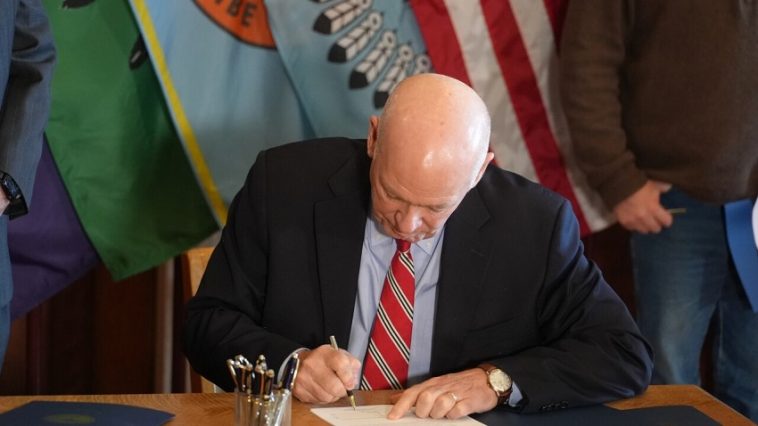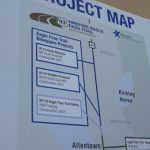Missoula, MT – The Montana Legislature has officially concluded its 69th session, marking the end of 85 working days filled with debates, negotiations, and the passage of over 800 bills. Lawmakers now look back on a session that saw significant accomplishments, though not without its share of contention between the state’s political leaders.
Senate President Matt Regier, R-Kalispell, hailed the session’s productivity, noting that more bills had been passed than in any session since Montana’s constitutional convention. “We’ve handled more bills this session than any session before,” Regier said during a news conference following the Legislature’s adjournment on Wednesday.
One of the most significant legislative actions came on Thursday afternoon when Governor Greg Gianforte held his first public bill signing. The event was centered around a set of environmental bills designed to address concerns stemming from the Held v. Montana climate lawsuit, a landmark case that challenged the state’s environmental policies. The bills aim to clarify existing regulations and streamline the permit process while still prioritizing environmental protections.
“We were left with uncertainty by the Supreme Court’s decision,” Gianforte explained. “We’ve tightened up those loopholes, and this will make it easier to issue permits while protecting the environment at the same time, without adding undue red tape.”
In addition to environmental reforms, Republican leaders highlighted other key successes, including tax cuts, funding for state prisons, and policies championing conservative values, particularly in regard to gender transition issues. Regier described the session as one in which the Senate “rose to the occasion,” despite challenges.
However, tensions between the Senate and House Republicans became apparent, particularly regarding property tax reform and the state budget. While Senate leaders criticized the property tax plan as a “rearrangement” rather than substantial relief, House Republicans defended the compromise as a necessary step to secure a majority and get bills passed. House Majority Leader Rep. Steve Fitzpatrick, R-Great Falls, acknowledged that the final bills were not perfect but insisted they represented a good faith effort to work across party lines.
Republicans also made overhauling the judicial system a priority this year. Senate Majority Leader Tom McGillvray, R-Billings, noted that several bills aimed at increasing judicial transparency and accountability were approved. However, two of the most controversial proposals — one to create a government claims court to handle constitutional lawsuits and another to allow judicial candidates to campaign with party labels — failed to gain traction. In the final days of the session, there were discussions about reviving the partisan judicial elections proposal, but those efforts ultimately did not succeed.
On the Democratic side, leaders celebrated their success in defeating the push for partisan judicial elections, which they saw as a significant threat to the independence of the courts. House Minority Leader Rep. Katie Sullivan, D-Missoula, pointed out that Democrats had successfully blocked 21 out of 27 Republican-led judicial reform bills, including the most contentious proposals. “We killed the worst one, in our opinion — which is partisanship into judicial elections,” she said, emphasizing that Democrats had “killed it not once, but at least five separate times.”
Democrats also celebrated their victories in expanding funding for education and child care, as well as the successful elimination of the sunset date for Montana’s Medicaid expansion program. Senate Minority Leader Pat Flowers, D-Belgrade, expressed pride in the Medicaid victory, framing it as a crucial step in protecting health care for thousands of Montanans. “That sends a clear message to the governor and to Washington, D.C.,” Flowers said, “Montanans expect and demand the health care coverage they get through the Medicaid program.”
As the 69th session draws to a close, both Republicans and Democrats reflect on the work accomplished. While they may disagree on specifics, both sides point to key legislative wins that align with their values and priorities. The session was marked by ideological divides, but ultimately, lawmakers were able to push forward a range of bills addressing issues from tax reform to environmental regulation to health care. With the Legislature now adjourned, all eyes turn to Governor Gianforte as he signs the final bills into law.



